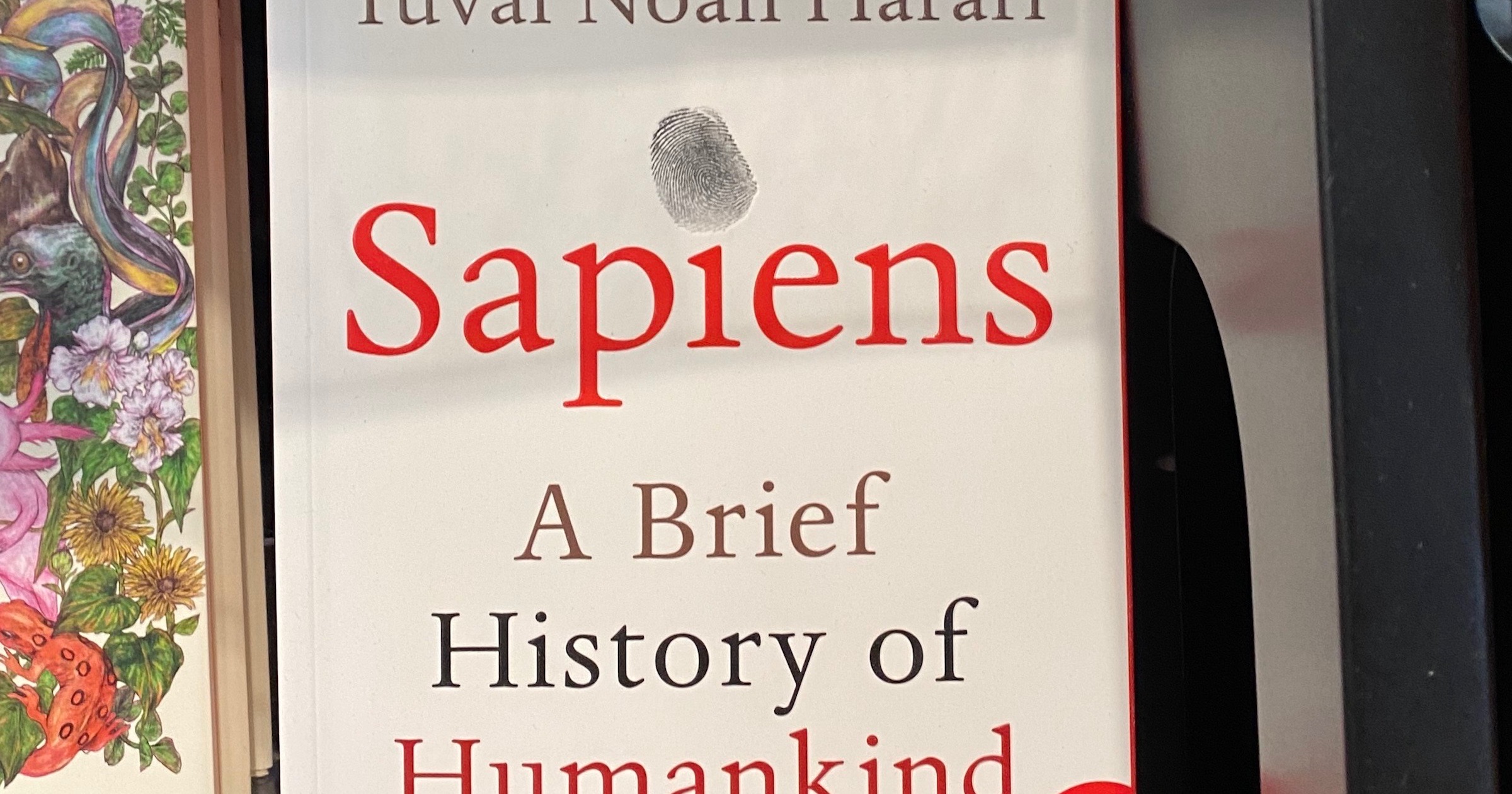 Human Origins
Human Origins
New Review Series — Yuval Noah Harari’s Sapiens

Editor’s note: In a series, Casey Luskin is reviewing Sapiens, by Yuval Noah Harari. This is Part 1. Look here for Part 2, Part 3, Part 4, Part 5, and Part 6. The full review can be found here.
When traveling through airports I love to browse bookstores, because it gives a sense of what ideas are tickling the public’s ears. For the last few years I’ve seen in airport bookstores a book, Sapiens: A Brief History of Humankind (HarperPerennial, 2015), stocked in large piles and prominently displayed. In fact it’s still being sold in airport bookstores, despite the fact that the book is now some six years old. Above is a snapshot I took last week in traveling to Texas for our Summer Seminar Capstone Weekend.
As I’m interested in human origins, I assumed this was a book that I should read — but try reading a 450-page book for fun while doing a PhD. It doesn’t happen. Somewhere along the way I bought the book and saved it for later.
Then earlier this year an ID-friendly scientist contacted me to ask my opinion of the book. He mentioned a former Christian who had lost his faith after reading Sapiens, and then told the story on Justin Brierley’s excellent show Unbelievable? My friend asked if I would address Sapiens in my talk at the Dallas Conference on Science and Faith, which I ended up doing. What could be so powerful in this book that it would cause someone to lose his faith?
So I Started Reading It
The author, Yuval Noah Harari, is an Israeli who holds a PhD from Oxford (where he studied world history), an atheist, and a darling of the intelligentsia who have given him and his book many reviews and profiles over the past few years. A big reason for his popularity is that Sapiens is exceptionally well-written, accessible, and even enjoyable to read. But the main reason for the book’s influence is that it purports to explain, as The New Yorker put it, the “History of Everyone, Ever.” Who wouldn’t want to read such a book?
I offer this praise even though I disagreed with a lot of what Harari says in the book. Much of it involves uncontroversial accounts of humanity that you learned about in your eighth-grade history class — i.e., the transition from small hunter-gatherer foraging tribes, to agriculture-based civilizations, to the modern day global industrial society.
No big deal there. But the book goes much further.
Harsh Words from Academics
Sapiens purports to explain the origin of virtually all major aspects of humanity — religion, human social groups, and civilization — in evolutionary terms. Along the way it offers the reader a hefty dose of evolutionary psychology. While reading it I consistently thought to myself, “This book is light on science and data, and heavy on fact-free story-telling — and no wonder since many of his arguments are steeped in data-free evolutionary psychology!” So I decided to look up the book’s Wikipedia page to see if other people felt the same way. Turns out they did — and the reviews from academics have been devastating. From Wikipedia:
Anthropologist Christopher Robert Hallpike reviewed the book [Sapiens] and did not find any “serious contribution to knowledge”. Hallpike suggested that “…whenever his facts are broadly correct they are not new, and whenever he tries to strike out on his own he often gets things wrong, sometimes seriously”. He considered it an infotainment publishing event offering a “wild intellectual ride across the landscape of history, dotted with sensational displays of speculation, and ending with blood-curdling predictions about human destiny.”
Science journalist Charles C. Mann concluded in The Wall Street Journal, “There’s a whiff of dorm-room bull sessions about the author’s stimulating but often unsourced assertions.”
Reviewing the book in The Washington Post, evolutionary anthropologist Avi Tuschman points out problems stemming from the contradiction between Harari’s “freethinking scientific mind” and his “fuzzier worldview hobbled by political correctness”, but nonetheless wrote that “Harari’s book is important reading for serious-minded, self-reflective sapiens.”
Reviewing the book in The Guardian, philosopher Galen Strawson concluded that among several other problems, “Much of Sapiens is extremely interesting, and it is often well expressed. As one reads on, however, the attractive features of the book are overwhelmed by carelessness, exaggeration and sensationalism.”
Those are some harsh words, but they don’t necessarily mean that Harari’s claims in Sapiens are wrong. I will be reviewing the book here in a series of posts. It’s worth taking a closer look to evaluate what is compelling and what is controversial about it. At the end of this series I’ll address the precise claims in the book that apparently led one person to lose his faith.
Next, “In Sapiens, Admissions and Overstatements about Human Evolutionary Origins“
